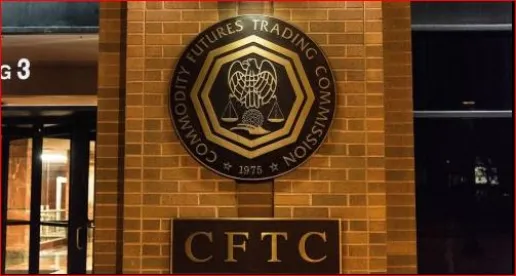On October 1, 2018, Chairman Giancarlo of the Commodity Futures Trading Commission (“CFTC” or “Commission”) released a white paper titled “Cross-Border Swaps Regulation Version 2.0: A Risk-Based Approach with Deference to Comparable Non-U.S. Regulation.” The Chairman previewed both his views on cross-border swaps reform and the paper in speeches delivered in London, Tokyo and Singapore last month.
The white paper released this week provided extensive background on the current regulatory regime for cross-border swaps while also listing a number of adverse consequences of the current approach. The paper then outlined the foundations of contemplating swap reform, principles that should be adhered to when constructing a new architecture for swap regulation and finally concrete recommendations for rule revisions.
Despite following a similar structure to Chairman Giancarlo’s aforementioned speeches the white paper differed from the previous remarks in a few respects. The speeches set forth five principles to which cross-border swaps reform should adhere. The paper sets forth six principles adding that the “current division of global swaps markets into separate U.S. person and non-U.S. person marketplaces” should end. Further, “markets in regulatory jurisdictions that have adopted the G20 swaps reform should each function as a unified marketplace, under one set of comparable trading rules and under one competent regulator.”
The justification provided for this principle was that fragmentation of the “global swaps market means that businesses and commercial enterprises around the globe are denied access to deep, liquid, and consolidated markets” for hedging risks that are “necessary to business expansion, job creation, and economic development.” The white paper also revised a principle relating to deference.
Previously, Chairman Giancarlo stated, “the CFTC should act with deference towards comparable swaps reform regulation in non-U.S. markets by adopting a flexible, outcomes-based approach for substituted compliance.” The white paper states, “the CFTC should act with deference to non-U.S. regulators in jurisdictions that have adopted comparable G20 swaps reforms, seeking stricter comparability for substituted compliance for requirements intended to address systemic risk and more flexible comparability for substituted compliance for requirements intended to address market and trading practices.”
The revised principle includes an acknowledgement of those countries that have already implemented reforms — a point that is emphasized throughout the paper — as well as the view that a flexible outcomes-based approach extends to those requirements addressing market trading practices but not to those requirements addressing systemic risk.
While Chairman Giancarlo’s speeches broadly outlined intended reforms, the 99-page white paper carefully outlines improvements to the CFTC’s cross-border approach that “are supportive of the G20 swaps reforms and aligned to Congressional intent, and that better balance systemic risk mitigation with healthy swaps market activity in support of broad-based economic growth.”
The primary recommendations are
-
Non-U.S. CCPs – Expanding the use of the CFTC’s exemptive authority for non-U.S. CCPs that are subject to comparable regulation and do not pose systemic risk to the U.S. i.e. permitting non-U.S.CCPs to provide clearing services to U.S. customers indirectly through non-U.S. clearing members that are not registered with the CFTC.
-
Non-U.S. Trading Venues – Ending the distinction between U.S. person and non-U.S. person marketplaces by exempting non-U.S. trading venues, in regulatory jurisdictions that have adopted comparable G20 swaps reforms, from having to register with the CFTC as swap execution facilities.
-
Non-U.S. Swap Dealers – Requiring registration of non-U.S. swap dealers whose swap dealing activity pose a “direct and significant” risk to the U.S. financial system; taking into account situations where the risk to the U.S. financial system is otherwise addressed — either because swap transactions are conducted outside the United States or because the swap dealer is subject to similar regulatory requirements.
-
Clearing and Trade Execution Requirements – Adopting an approach that permits non-U.S. persons to rely on substituted compliance with respect to the swap clearing and trade execution requirements in jurisdictions where similar requirements are set forth and applying the same requirements in non-comparable jurisdictions, if they have a “direct and significant” effect on the United States.
-
ANE Transactions – Taking a territorial approach to U.S. swaps trading activity, including trades that are “arranged, negotiated, or executed” within the United States by personnel or agents of such non-U.S. persons. According to the Chairman, non-incidental swaps trading activity in the United States should be subject to U.S. swaps trading rules.
While the paper included foundations, principles for reform and concrete recommendations it did not mention the possibility of a “hard” Brexit which could ultimately jeopardize many of the proposals put forth. Nevertheless, the call for a “deference”-based approach will likely be welcomed by Britain in its bid to maintain London as Europe’s biggest center for clearing euro-denominated derivatives after leaving the EU next March.
Further, in advance of a possible “hard” Brexit, the paper’s aim is clearly to smooth over any cross-border tensions with Chairman Giancarlo including statements such as “the CFTC arguably instigated a rift in cross-border swaps cooperation with non-U.S. jurisdictions, particularly Europe, with the CFTC Cross-Border Guidance by imposing CFTC transaction rules on swaps traded by U.S. persons, even in jurisdictions committed to implementing the G20 swaps reforms.”
Finally, the proposal in the paper will be presented to the full Commission for “thoughtful input and bipartisan consideration and adoption.” The white paper only presents Chairman Giancarlo’s view of a new cross-border approach. It will need to be transposed into a proposed rule for a full Commission vote and public comment before there can be any changes to the CFTC’s current cross-border construct.
With new Commissioners on board (the Commission has a full slate of members for the first time in four years), who will need time to get up to speed on the substance of the Chairman’s agenda, the timing of the changes Chairman Giancarlo has discussed will not be seen until next year. The resultant rulemakings would replace the cross-border guidance issued in 2013 and the cross-border rules proposed in 2016, as well as address certain positions taken in CFTC staff advisories and no-action letters.




 />i
/>i

